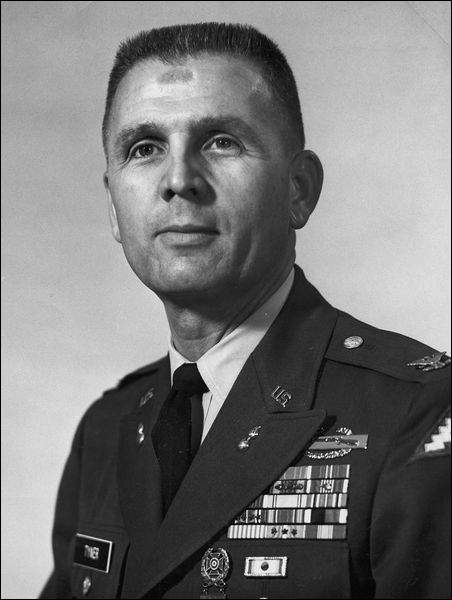Army colonel was ‘Southern gentleman’
By MARK ZALOUDEK
Courtesy of the Herald Trubune
2 January 2007
SARASOTA, FLORIDA – When two Pulitzer Prize-winning writers were doing research for books on the Korean War, they sought out Colonel Layton “Joe” Tyner.
The decorated 33-year Army veteran who retired to Sarasota was a military aide to one of General Douglas MacArthur’s top commanders in Korea, General Walton “Bulldog” Walker.
Walker’s Eighth Army helped drive back the North Koreans who invaded South Korea in 1950. Tyner was a passenger in Walker’s Jeep later that same year when it crashed, killing Walker and leaving Tyner hospitalized for nearly a year.
The accident was one of several close calls for Tyner, who also served in World War II and the Vietnam War. He also narrowly survived the flu pandemic in 1918 at the age of 2 that is believed to have killed as many as 5 percent of the world’s population.
Tyner, who remained active in retirement as a car, boat and plane enthusiast, died January 15, 2007. of complications from a tumor. He was 90.
“He was always considerate of others and earned their respect because he respected them,” said his daughter, Libby Tyner of Sarasota.
“He was a Southern gentleman all the way,” said his wife, Grace. “He always said ‘please’ and ‘thank you’ and I never heard him say an ugly word about anybody in the 48 years that we were married.”
Born August 3, 1916, in Raleigh, North Carolina, Tyner attended North Carolina State University and had been serving in the National Guard for two years when it was mobilized in 1940 shortly after the start of World War II.
He took part in the Normandy invasion with the Army’s 30th Infantry Division in June 1944 and was wounded two months later in the German counter-offensive at the Battle of Mortain in France.
He was among the occupation forces in Japan after the war when he was sent to Korea in 1950.
He later recounted his experiences in Korea to Pulitzer Prize-winning historian John Toland, who wrote “In Mortal Combat: Korea 1950-1953,” and Pulitzer Prize-winning journalist David Halberstam, who was doing research for a book on the Korean War, said Tyner’s son, Layton “Max” Tyner, an Army Master Sergeant stationed at Fort Bragg, North Carolina.
After Korea, Colonel Tyner’s military career included observing tests of an atomic howitzer in a Nevada desert in the mid-1950s that blew a 45-ton tank off the ground, and serving as one of the Army’s top logisticians in the Pentagon during the Vietnam War.
In the 1960s, he had approximately 4,500 American GIs in four battalions in Germany under his command. Before retiring in 1971, he was stationed at Florida’s Homestead Air Force Base, where he oversaw the Nike, Hercules and Hawk missile sites set up in South Florida in response to the Cuban Missile Crisis.
Among the medals he received were a Purple Heart, a Bronze Star, a Combat Infantry Badge, an Air Medal with four oak leaf clusters, an Army Commendation Medal with three oak leaf clusters, and a Legion of Merit Medal with an oak leaf cluster.
“If he didn’t have to take mandatory retirement at 55, my dad would probably still be serving,” his son said.
In retirement, he co-owned a yacht sales business and was a member of the U.S. Coast Guard Auxiliary/Flotilla 84, where he taught engine maintenance classes and patrolled local waters.
He was also a member of the Experimental Aircraft Association.
Services are pending. He will be buried at Arlington National Cemetery.
In addition to his wife and two children, Tyner is survived by two sisters, Gladys Parker of Raleigh, North Carolina, and Doris Howard of Ormond Beach, and son-in-law Jack Bispham.
Memorial donations may be made to Pensacola United Methodist Church, 9255 State Hwy. 197 S., Burnsville, North Carolina 28714; or to Pine Shores Presbyterian Church, 6135 Beechwood Avenue, Sarasota, Florida 34231.
Michael Robert Patterson was born in Arlington and is the son of a former officer of the US Army. So it was no wonder that sooner or later his interests drew him to American history and especially to American military history. Many of his articles can be found on renowned portals like the New York Times, Washingtonpost or Wikipedia.
Reviewed by: Michael Howard


